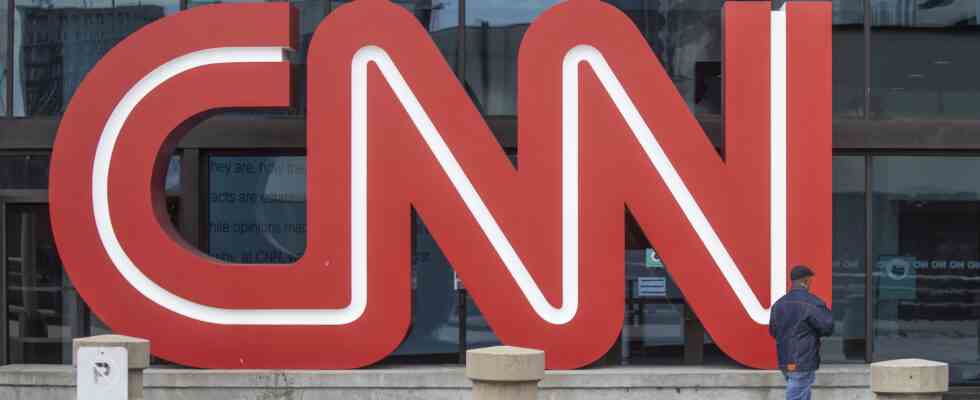Status: 05.03.2022 09:03
More and more foreign and domestic media are shutting down their operations in Russia. Critical reporting can result in long prison sentences. Social networks were also restricted or completely blocked.
The Russian government is attempting to pass legislation to restrict what it considers to be undesirable reporting on the war in Ukraine. More and more media at home and abroad are ceasing reporting in Russia under this pressure.
Most recently, the two US broadcasters CNN and CBS News announced that they would also stop broadcasting in Russia. First of all, CNN wanted to “further evaluate the situation and our next steps,” said a spokesman for the station.
The British BBC, Canada’s state broadcaster CBC/Radio-Canada and the US news agency Bloomberg had previously announced that they would stop reporting in Russia for the time being.
BBC boss Tim Davie sharply criticized the law passed by the Russian parliament on Friday. It should “criminalize independent journalism”. Davie stressed: “This leaves us with no choice but to temporarily suspend the work of all BBC journalists and their teams within the Russian Federation.” The broadcaster is not willing to expose its own employees to the risk of criminal prosecution just because they are doing their job. The BBC wants to continue to provide information in Russian – but from outside Russia.
Up to 15 years imprisonment threatened
The new law threatens media jail terms and fines for spreading news about the invasion of Ukraine that the Russian government considers false.
“I want everyone to understand, and for our society to understand, that we are doing this to protect our soldiers and officers and to protect the truth,” said Russian State Duma Chairman Vyacheslav Volodin behind the resolutions. In “serious” cases, the prison sentence can be up to 15 years.
In Russia itself, for example, there is still talk of a military operation or special operation in Ukraine. Media are forbidden to report on an invasion or a war.
Allegedly false reports of attacks and casualties
The online services of Deutsche Welle (DW) and other Western media such as Voice of America, Radio Free Europe/Radio Liberty are no longer available in Russia.
The media supervisory authority Roskomnadzor accused the operators of the blocked websites of having published incorrect information, such as attacks on the Ukrainian civilian population or the number of deaths in Ukraine.
Deutsche Welle published articles on its website about technological options for bypassing a ban. The BBC also tweeted instructions on how Russian readers can access their writing using specific apps or the dark web.
Russia is also taking action against social networks. Access to Twitter has been restricted and Facebook has been completely blocked since Friday. According to media regulator Roskomnadzor, because the platform “discriminated against” Russian media.
Domestic media also stop operations
In addition to the foreign media, several Russian channels have also had to shut down their work. The independent news portal “Znak” from Yekaterinburg – the largest independent news service outside of Moscow and St. Petersburg – has ceased its service, citing the massive restrictions of the past few days.
“Novaya Gazeta”, whose editor-in-chief Dmitry Muratov was awarded the Nobel Peace Prize in 2021, announced that with immediate effect it would no longer publish news about the war in Ukraine.
Bans and blockages
The Russian authorities had already blocked several critical broadcasters in the past few days. The independent radio station Echo Moskvy, for example, announced its dissolution yesterday after being banned from broadcasting for its reporting on the invasion of Ukraine. The independent TV channel “Doschd” was banned.
After fleeing abroad: the editor-in-chief of the Russian channel “Doschd-TV” in conversation
daily topics, March 3rd, 2022
Searches at “Memorial”
New searches at the organization “Memorial”, one of the best-known and oldest human rights organizations in Russia, show how great the pressure on civil society as a whole is. The police did not give any reasons for the search, the officials suddenly stood in front of the door with bulletproof vests and masks on their faces and threatened to use force to gain access, said Memorial chairman Jan Ratschinsky. “This is how the judiciary is in the Russian capital today.”
Another human rights organization, the Committee for Citizen Support, also reported a raid on its Moscow office on Friday.

